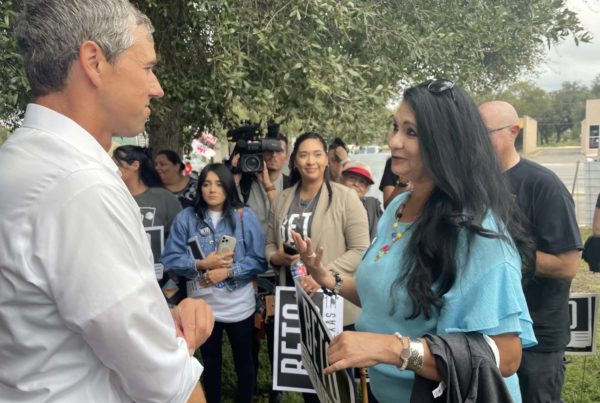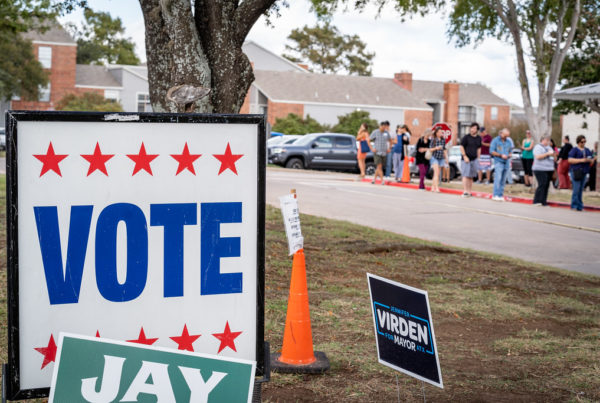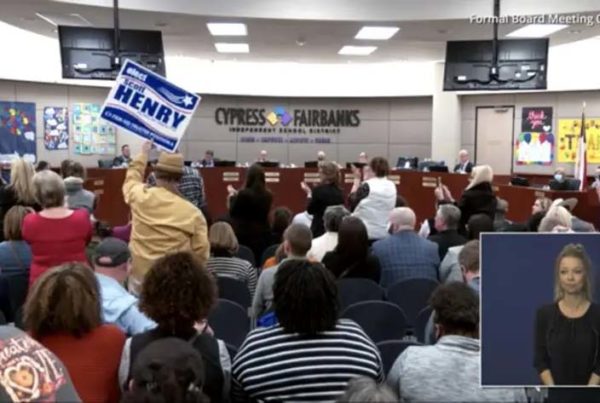From KERA:
In a recent attack ad from Lt. Gov. Dan Patrick against his Democratic opponent Mike Collier, Patrick accuses Collier of being an extremist candidate: pushing for “open borders,” abolishing Immigration and Customs Enforcement, and banning charter schools.
The only problem, Collier says, is none of that is true.
“I don’t recognize the person he’s running against, he’s not running against the real Mike Collier,” Collier said. “Most of what he says is not true. You know, as someone who comes from the business world like I do, we really prefer people to be honest. I guess in politics I have to tolerate it.”
It’s the latest salvo in what’s become a contentious battle for one of the most influential jobs in Texas. Patrick, the incumbent Republican, is seeking a third term against Collier, a former Republican turned moderate Democrat.
According to recent polling, Patrick holds a comfortable lead over Collier. But whoever wins will hold a lot of political power: The lieutenant governor presides over the Texas Senate, helps shape the state’s legislative agenda, and oversees the budget and redistricting.
And this year’s contest is a rematch, after Patrick narrowly defeated Collier four years ago.
Patrick’s already spent $19 million on advertising, some of which helped launch the attack ad that ruffled feathers in the Collier camp. In response to the ad, Collier’s attorney sent a cease-and-desist letter to the state’s major television stations, demanding they either force Patrick’s campaign to provide citations for the claims — or stop running the ads altogether — citing Federal Communications Commission regulations on deceptive advertising, requiring broadcasters to ensure ads they air aren’t false or misleading.
Patrick did not respond to requests for comment, but defended the ad during a late October campaign stop in Beaumont.
“Our ads are still on the air,” Patrick said. “No TV station has asked us to take them down, because what we said, we stand by.”
University of Houston political science professor Brandon Rottinghaus said the attack ad suggests Patrick sees Collier’s campaign as a threat.
He said it’s also an attempt to poke holes in Collier’s image as a moderate.
“That’s been a challenge for Collier to try to counteract,” Rottinghaus said. “Because the race is so national, it’s hard for him to be able to say that he’s a unique kind of Democrat when the perception is all Democrats are liberal.”
Collier says his focus has been on appealing to independent voters and those who may feel disconnected from the GOP as it moves further to the right. While Patrick has tried to paint Collier as a leftist Democrat, the challenger says he’s against extremism on all sides.
“I think the legislature should stay focused on the real problems, not chase these culture wars issues,” he said. “We’ve got problems to solve. In a democracy, you roll up your sleeves and work together to solve these problems.”
As Senate leader, Patrick spearheaded a number of strict laws on voting, guns and abortion in the last legislative session.
Prominent members of the party — including Patrick — have also courted the endorsement of former president Donald Trump, who continues to spread the lie that the 2020 presidential election was stolen.
In the wake of that election, in which the former president insisted without evidence that mass voter fraud cost him the race, Patrick offered up at least $25,000 of his own campaign funds to anyone who could provide proof of fraud in Texas.
Patrick, who also served as the Trump campaign’s former Texas chairman, received that endorsement in May. In a statement, the former president called him, “a great fighter for the people of Texas.”
“Texans should re-elect him! He is outstanding and has my Complete and Total Endorsement!” Trump wrote.
That endorsement will likely go a long way to securing enthusiasm from the Republican base, and could be the deciding factor if Patrick does win reelection. But the party’s rightward shift — and Patrick’s embrace of it — could also turn off some moderate Republicans, Rottinghaus said.
“There are a lot of Republicans out there who like the party’s focus on taxes, low regulations and keeping budgets pretty tight,” he said. “The more that the party deviates from that, the more a lot of Republicans in the middle are uncomfortable with the direction of the party.”
















